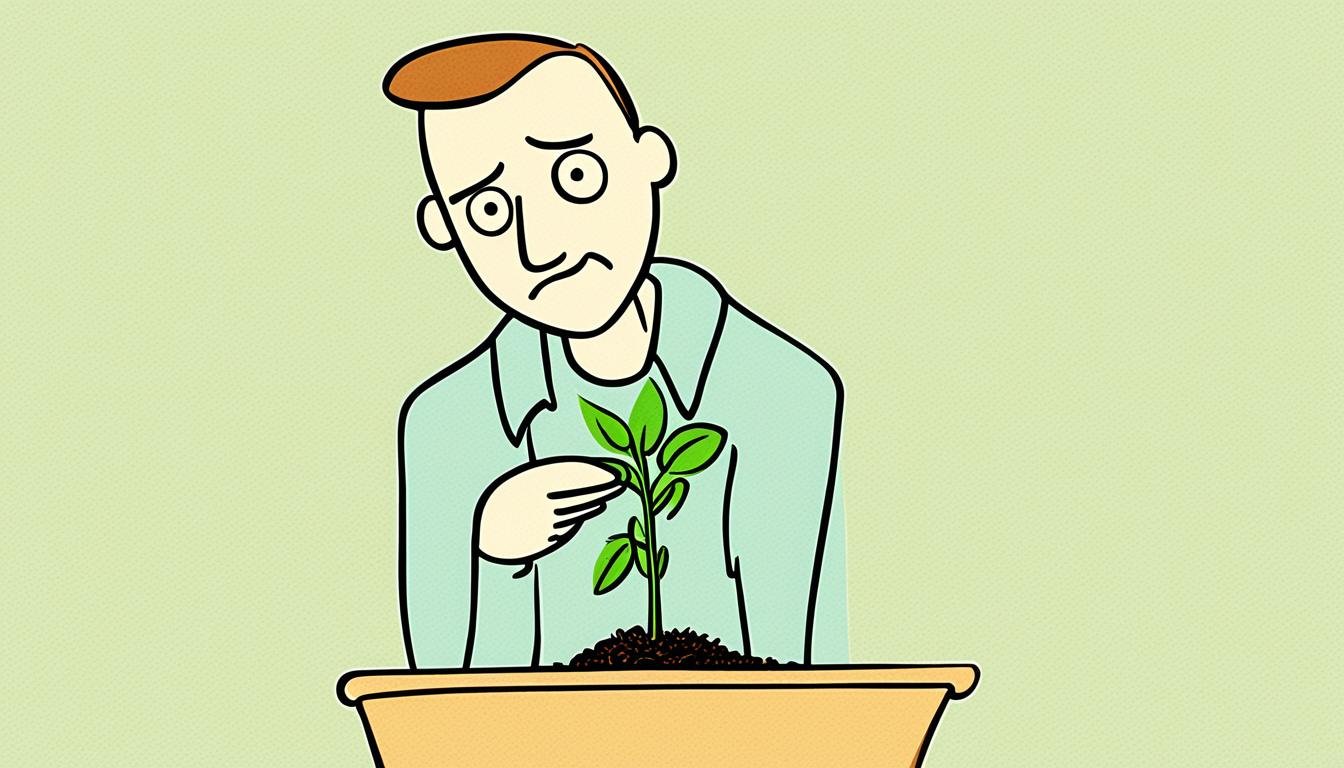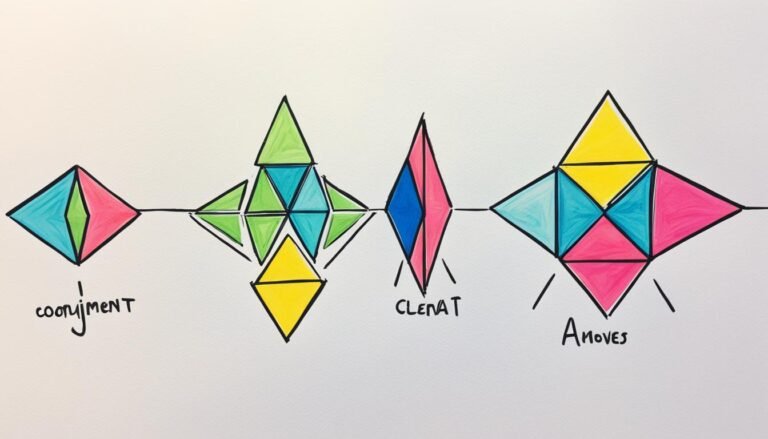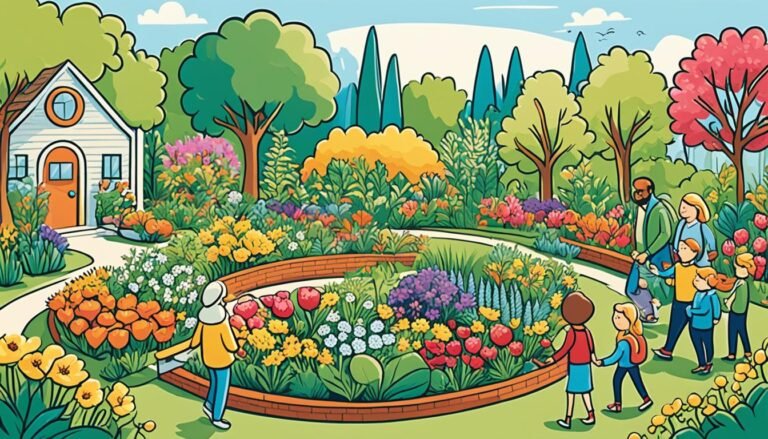The Power of Compassion: Cultivating Empathy and Kindness in Everyday Life
“Compassion is not a relationship between the healer and the wounded. It’s a relationship between equals. Only when we know our own darkness well can we be present with the darkness of others. Compassion becomes real when we recognize our shared humanity.” – Pema Chodron
Let’s start a journey where we discover ourselves and connect with others. This path merges empathy and kindness to create a mighty force. It has the power to change our lives and our world.
In today’s fast and often isolating world, learning to be compassionate is vital. Compassion isn’t just for others but includes understanding and being kind to ourselves. It asks us to become aware of our emotions and be mindful. This helps us build deeper connections that go beyond barriers and sparks growth in our hearts. With compassion, we can tap into our great ability to make a difference.
This article dives into what compassion truly means. We’ll look at how it involves feeling for others and showing kindness, aiming for the greater good. We’ll also see how being compassionate benefits our health and society. By the end, you’ll know ways to make compassion a big part of your everyday life and see its amazing effects.
Key Takeaways:
- The power of compassion lies in recognizing our shared humanity and embracing our own darkness.
- Compassion is a transformative force that fosters empathy, kindness, and personal growth.
- Cultivating compassion requires developing emotional intelligence, practicing mindfulness, and strengthening human connections.
- Compassion positively impacts our well-being, including mental, emotional, and physical health.
- By cultivating compassion, we contribute to creating a more compassionate and harmonious world.
Understanding Compassion: What It Means to Be Compassionate
Compassion is at the heart of what makes us human. It’s about feeling what others feel and wanting to help. This means being kind and selfless, making real connections with people.
Understanding compassion is more than knowing what it is. It means really feeling our shared humanity. We see the suffering in others and wish to end it.
Compassion is seeing the world through someone else’s eyes, without judgment. It’s about making real connections with people. It doesn’t stop at feeling sorry for others. We take real steps to help, aiming to make a difference.
“Compassion is not just a feeling; it is a transformative force that drives us to reach out and help, creating a ripple effect of kindness and goodness.” – Dalai Lama
Being kind doesn’t just help others; it makes us happier. Science shows that being compassionate releases a hormone that makes us feel good. It’s good for everyone involved.
Imagine a deep, wide river flowing gently. This river is like the shared feelings of kindness and understanding. In its waters, we find what it means to truly understand compassion.
The Aspects of Compassion:
- Empathy: The ability to step into someone else’s shoes, feel what they feel, and understand their emotions.
- Kindness: The act of showing warmth, consideration, and compassion towards others, whether through small gestures or significant acts of generosity.
- Altruism: The selfless concern for the welfare and happiness of others, prioritizing their needs and well-being over personal gain.
To really understand compassion, you need to be open and let go of judgment. It’s about acting with kindness and seeing everyone’s shared humanity. With compassion, we can build a world full of connection and kindness.
The Benefits of Compassion: How It Impacts Our Well-being
Compassion is a crucial virtue that plays a significant role in our well-being. By showing compassion, we extend benefits far beyond simple acts of kindness.
Practicing compassion positively affects our mind, heart, and body. Our brain releases oxytocin, the “love hormone,” during acts of compassion. This hormone reduces stress, anxiety, and can even lower blood pressure, supporting healthier hearts.
Moreover, compassion boosts our empathy and emotional intelligence. It helps in building great relationships by understanding and appreciating the experiences of others. This leads to a harmonious and supportive society.
Compassion is also key for our personal growth and acceptance. Showing kindness to ourselves and others improves our self-esteem and helps us learn from our mistakes. This way, we grow stronger and more resilient.
The Impacts of Compassion on Mental Health
Studies suggest that compassion significantly impacts our mental health. It boosts positive feelings like happiness and decreases negative emotions such as stress and anxiety.
Engaging in compassionate acts turns our attention from ourselves to others. This can help break negative thought cycles and lead to a more positive life view.
The Connection Between Compassion and Emotional Well-being
Our emotional health improves when we empathize and connect with others. Compassion boosts our emotional intelligence, making our relationships healthier and more fulfilling.
“Compassion is not just about making a difference in the lives of others; it’s also about making a positive impact on our own well-being.”
Promoting Physical Health Through Compassion
Compassion also boosts our physical health. Research shows it improves our immune system and speeds up healing.
Compassionate people tend to lead healthier lives. They often exercise, eat well, and sleep enough. These lifestyle choices lead to better overall health and a higher quality of life.
Compassion, in conclusion, has huge benefits. It positively affects our mental, emotional, and physical health. Let’s make compassion a part of our lives and see how it changes us and the world.
Developing Empathy: Building Bridges of Understanding
Empathy is at the core of compassion. It helps us deeply connect with others. It is about seeing the world from someone else’s viewpoint, understanding and sharing their feelings.
Working on empathy is a significant journey. It involves looking within ourselves and trying hard to understand others. This builds stronger connections and deepens our compassion.
Active listening is a key step. It means paying full attention to the person talking, without jumping in or judging. This way, we get to the heart of what the other person feels, creating a supportive setting for honest talks.
Another useful skill is perspective-taking. By putting ourselves in someone else’s position, we can better understand their emotions. This task widens our view of the world and helps us overcome personal biases.
“Empathy is about standing in someone else’s shoes, feeling with his or her heart, seeing with his or her eyes.”
~ Daniel H. Pink
Nurturing empathy through storytelling
Storytelling greatly helps in spreading empathy. Through stories, we get to know different lives and feelings. This can be through reading, watching movies, or sharing personal stories. It opens our minds and hearts to new perspectives.
“Empathy begins with understanding life from another person’s perspective. Nobody has an objective experience of reality. It’s all through our own individual prisms.”
Actively building up our empathy skills can change the world. With empathy, we break down barriers and learn to truly understand those around us.
- Practice active listening
- Cultivate perspective-taking
- Engage in diverse storytelling
The power of empathy in building bridges
Empathy is key in bridging understanding between different folks. It helps us connect beyond cultural and social differences. By truly getting into another’s shoes, we bring people closer, fostering harmony and teamwork.
Developing empathy is a step towards a kinder world. It’s where we celebrate our differences and grow through mutual understanding. With empathy, we lay down the groundwork for a future where all can flourish.
The Power of Kindness: Spreading Joy and Positivity
Kindness is an amazing thing. It can make the world a better place by spreading joy and positivity everywhere. It can touch people’s lives, change how we see things, and start a chain reaction of kindness. Choosing to be kind helps make the world friendlier and more caring.
Simple acts of kindness go a long way. A smile can brighten someone’s day. Or helping out when someone’s in need can make a big difference. These little actions can lift spirits, bring hope, and start a wave of positivity for everyone they touch.
Being kind not only helps others, but it also makes us feel good. Studies show that being kind can improve our own happiness and well-being. It makes us calm by releasing endorphins, lowers stress, and toughens us against emotional challenges.
Kindness spreads like wildfire. A kind act or smile can make someone else want to be kind too. Imagine a world where everyone is kind, understanding, and caring during every talk or meeting. Each act of kindness inspires another, starting a cycle that brings happiness and kindness to all.
“Carry out a random act of kindness, with no expectation of reward, safe in the knowledge that one day, someone might do the same for you.” – Princess Diana
Princess Diana shared how special kindness is. She talked about how being kind changes more than just one person. It builds a world full of love and joy for us all. Being kind is being part of something big, something that changes the world by making it more caring.
Nurturing a Culture of Kindness
Creating a kind culture starts with us. Doing things like holding doors open, giving genuine compliments, or helping charities. These simple actions have an impact that reaches far beyond ourselves.
Teaching kindness from a young age is key. By emphasizing being kind to children, we prepare them to change the world with their kindness. This education sets the stage for a better, kinder world in the future.
- Show appreciation and gratitude towards others.
- Be compassionate and understanding, seeking to empathize with others’ experiences.
- Practice active listening and offer support to those in need.
- Perform random acts of kindness without expectation of recognition.
- Celebrate the achievements and successes of others.
Living by these values can improve our society. With kindness, we can influence the world with positivity. We all have the power to create happiness and be a light in people’s lives through simple acts of kindness.
Cultivating Altruism: Putting Others Before Ourselves
In our journey towards kindness, one core belief stands out: putting others first. Altruism means caring about others without expecting anything back. This idea is key to living a compassionate life.
When we care about what others need and their happiness, it starts a chain of positive actions. This kindness doesn’t just help others feel better. It also makes us better and happier people.
Acting for others, not just ourselves, is a choice we make. It can strengthen our bonds with others, build trust, and remind us we’re all connected.
The Impact of Cultivating Altruism
Choosing others’ well-being over ours can change lives, both close to us and far away. Our kind actions can inspire others to be kind. This creates a wave of goodness that touches many lives.
“Altruism is not only about giving without expecting anything in return; it is a transformative force that shapes our character and ignites a sense of purpose.” – Jane Goodall
Focusing on altruism opens our eyes to how we are all part of one big picture. It moves us to make a difference, be it by lending a hand or caring for issues we believe in.
By sprinkling kindness everywhere, we make our communities warmer and tighter-knit. Our acts of giving encourage others to do the same. Together, this can change our society for the better.
Cultivating Altruism in Everyday Life
Being altruistic doesn’t always mean big things. Starting with small, mindful actions makes a big impact. By listening to someone or helping out, we can change lives around us.
- Take the time to actively listen to others, showing genuine interest in their thoughts and feelings.
- Perform acts of kindness without expecting anything in return, whether it’s volunteering at a local charity or helping a neighbor in need.
- Practice empathy by putting yourself in someone else’s shoes and considering their perspective.
With these daily efforts, we shape an altruistic way of thinking. This leads to a life filled with understanding and empathy.
Choosing others first is a strong step towards a world that’s better and kinder. Embracing altruism lets us grow and be a positive force for change.
Emotional Intelligence: Enhancing Compassionate Communication
Understanding others deeply requires emotional intelligence. This skill lets us understand and control our feelings. It also helps us get what others are going through. Emotional intelligence is key for talking kindly and effectively with others.
When we work on our emotional intelligence, we get better at hearing out others. We learn to really see, confirm, and react to what others feel. This deep empathy is the basis of good, kind talk.
Cultivating Emotional Awareness
Getting better at emotional intelligence means we must be aware of our feelings. We have to know what emotions we have, and how they impact us. By looking inside and thinking about our emotions, we can understand ourselves and others better.
Learning to understand our feelings helps us react to others with kindness. This makes tough times easier, as we can meet others with empathy and understanding.
Building Empathy through Emotional Intelligence
Empathy is key for talking kindly with others. It’s not just knowing how others feel, but sharing those feelings a bit. Emotional intelligence helps us really connect with what others feel.
“Empathy is about standing in someone else’s shoes, feeling with his or her heart, seeing with his or her eyes.” – Daniel H. Pink
Listening actively and watching how others act helps us feel with them. Emotional intelligence gives us the skills to be kind and sensitive, making talks open and safe.
Overcoming Barriers to Compassionate Communication
Sometimes, it’s hard to connect with others. Barriers like our own beliefs or past experiences can get in the way. Emotional intelligence helps us see and move past these barriers.
Knowing ourselves better helps us in tough talks. It lets us bring closer our different feelings and understand others more deeply.
Applying Emotional Intelligence in Everyday Life
Getting better at emotional intelligence needs work. Using things like mindfulness and listening to ourselves help. They make us more aware and better at talking with kindness.
Remember: getting better at emotional intelligence is an ongoing process. The more we understand and show we care, the kinder and more caring our relationships become.
The Role of Mindfulness: Being Present in Compassionate Action
In the quest for compassion, mindfulness is key. It’s about being alert in the now, without judging. When we add mindfulness to how we show caring, we make better connections. We understand others’ needs and feelings.
To be truly present in compassion means focusing completely on now. Whether with a person or a problem, we give our all. This focusing helps us feel others’ emotions more deeply.
This deep connection makes our help real and worthwhile. We notice others’ pains and react with true love.
Mindfulness sharpens our awareness to others’ needs. It shows us our hidden biases, stopping us from caring truly. It makes us shed our stereotypes and really see others.
Acting compassionately isn’t just about big moves. It’s about little things, like listening to a friend. It’s also about joining important causes. Doing these things with mind and heart together strengthens our effect.
Mindfulness makes our care for others honest and real. It helps us react with true love and insight. This, in turn, can change our world to a kinder place.
“When we are fully present in our compassionate actions, we create space for genuine connection and healing.” – Jon Kabat-Zinn
Mindfulness helps us grow deep empathy and love. It makes every interaction positive. Adding this to our acts of kindness, big or small, makes a big difference in the world.
The Power of Human Connection: Building Compassionate Communities
Human connection drives the creation of compassionate communities. By promoting empathy and kindness, we ensure everyone feels acknowledged and important. Together with boundless compassion, we transform our communities’ well-being.
Compassionate communities thrive on unity and support. People in these communities help and understand each other, working towards shared goals. Each member’s value is acknowledged, making everyone feel part of something meaningful.
Human connection’s power is in bringing us together, overcoming barriers, and promoting understanding. It lets us offer support, be compassionate, and spread kindness. Thus, it uplifts those among us and strengthens our communities.
Cultivating Empathy and Kindness
Empathy and kindness are essential in building compassionate places. They open the door for a more caring world. Empathy enables us to share the feelings of others, sparking a real wish to help.
Kind acts are the heart of compassionate communities. They spread joy and hope. Whether small or big, acts like helping, listening, or thanking can start a wave of compassion.
“Compassionate communities are built when people connect and act together. It’s through these actions that we form a strong, loving support network.”
Collective Action for Change
Such caring places need everyone’s efforts. By working together, we tackle big issues, support the weak, and transform our world. Shared goals and resources help our actions bring about significant change.
Creating these communities takes hard work and persistence from each of us. The power is in our unity. Together, we turn compassion into our way of living.
By valuing human connections, we sow seeds of compassion and growth in our societies. Let’s focus on fostering empathy, solidarity, and joint efforts. This way, every person can flourish in a caring community. Together, let’s build a future where compassion is at the core of our being.
- Connect with others on a deeper level
- Cultivate empathy and understanding
- Engage in acts of kindness
- Unite for a common purpose
- Work towards positive change
Personal Growth Through Compassion: Unlocking Our Potential
Compassion is a powerful force in our journey of growth. It leads us to discover ourselves and understand others. This understanding brings empathy and growth into our lives.
Feeling for others goes beyond empathy; it’s about understanding and kindness. Compassion helps us bond deeply with people, creating meaningful links and a sense of unity.
It makes us aware of others’ struggles and joys. This awareness lets us support and accept them. By helping others, we also learn to care for ourselves.
This process helps us build emotional intelligence. It improves our relationships and communication. We start to see how we can positively influence others, making their lives better.
Compassion is not just an act, but a way of being. It is key to transforming our lives and that of others. – Dalai Lama
Embracing compassion leads to deep self-awareness and growth. It helps us face our fears more gently. This process breaks barriers and reveals untapped potential.
Compassion shifts our focus from self-centered desires to helping others. It gives life more meaning and connection. With it, we work towards goals that benefit everyone.
Cultivating Compassion: Practical Steps Towards Personal Growth
- Practice self-reflection and mindfulness to develop a deeper understanding of your own emotions and reactions.
- Show kindness and empathy, both to loved ones and strangers. This strengthens your compassion.
- Engage in volunteering for causes you believe in. Extend your compassion to a broader community.
- Forgive, for both others and yourself. This allows room for personal growth and healing.
- Recognize the strength in vulnerability. Sharing experiences of both joy and pain deepens our connections.
Compassion is a journey that lasts a lifetime. It requires ongoing practice to unlock its full potential. As we do, we affect not just ourselves but everyone around us. Let’s make compassion our guide to personal growth and healing together.
Conclusion
The power of care is huge. In this article, we’ve looked at what care is and what it can do. It includes understanding, being nice, and knowing how to feel and work with your emotions.
We build better ties and a kinder world by understanding each other through care. Being nice can spread happiness and good vibes to everyone. This leads to a domino effect of good that helps both single people and whole groups.
Knowing your feelings and the feelings of others help us talk and act with care. This makes communities where understanding, nice acts, and doing things together can grow.
By being caring every day, we not only grow ourselves but also help the world be better. Being caring is a way to truly impact the world, making it a nicer and fairer place. So, let’s start showing more care, for our own good and for the world we all live in.








